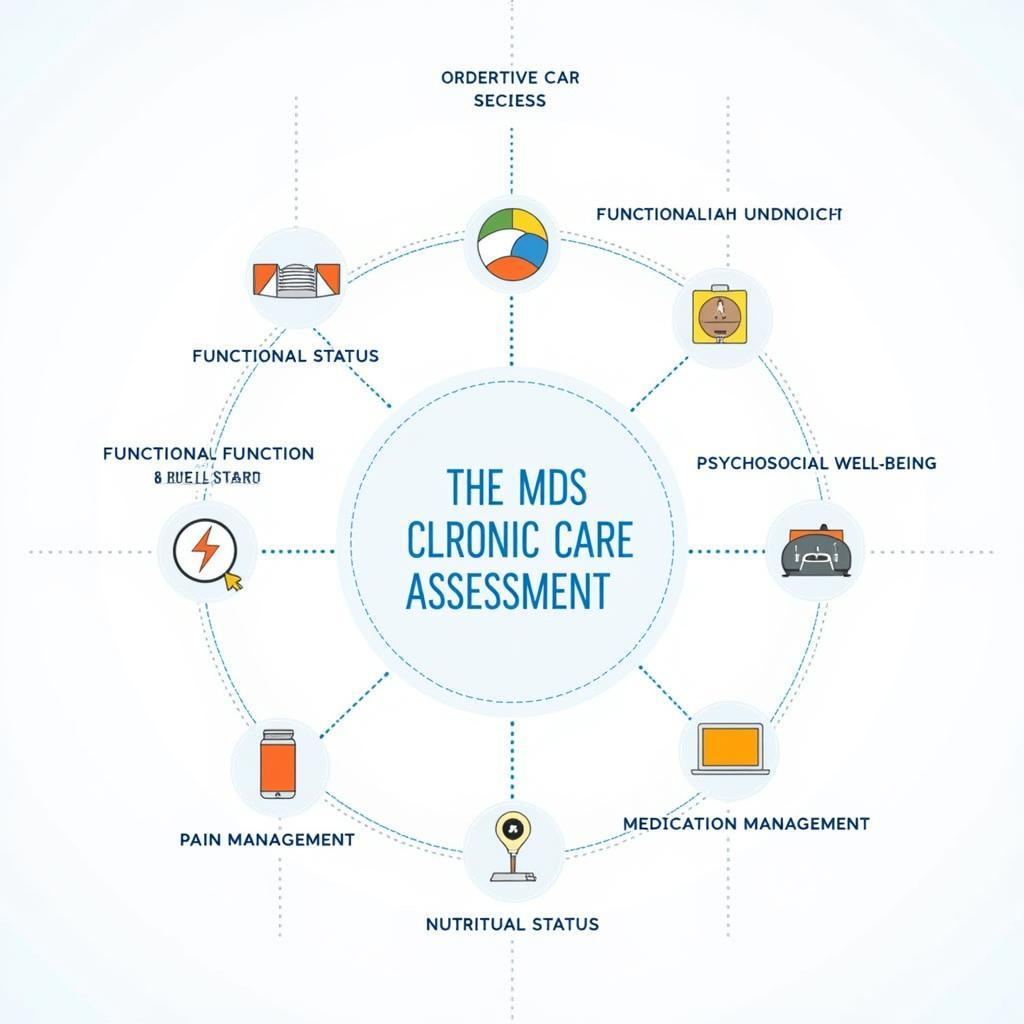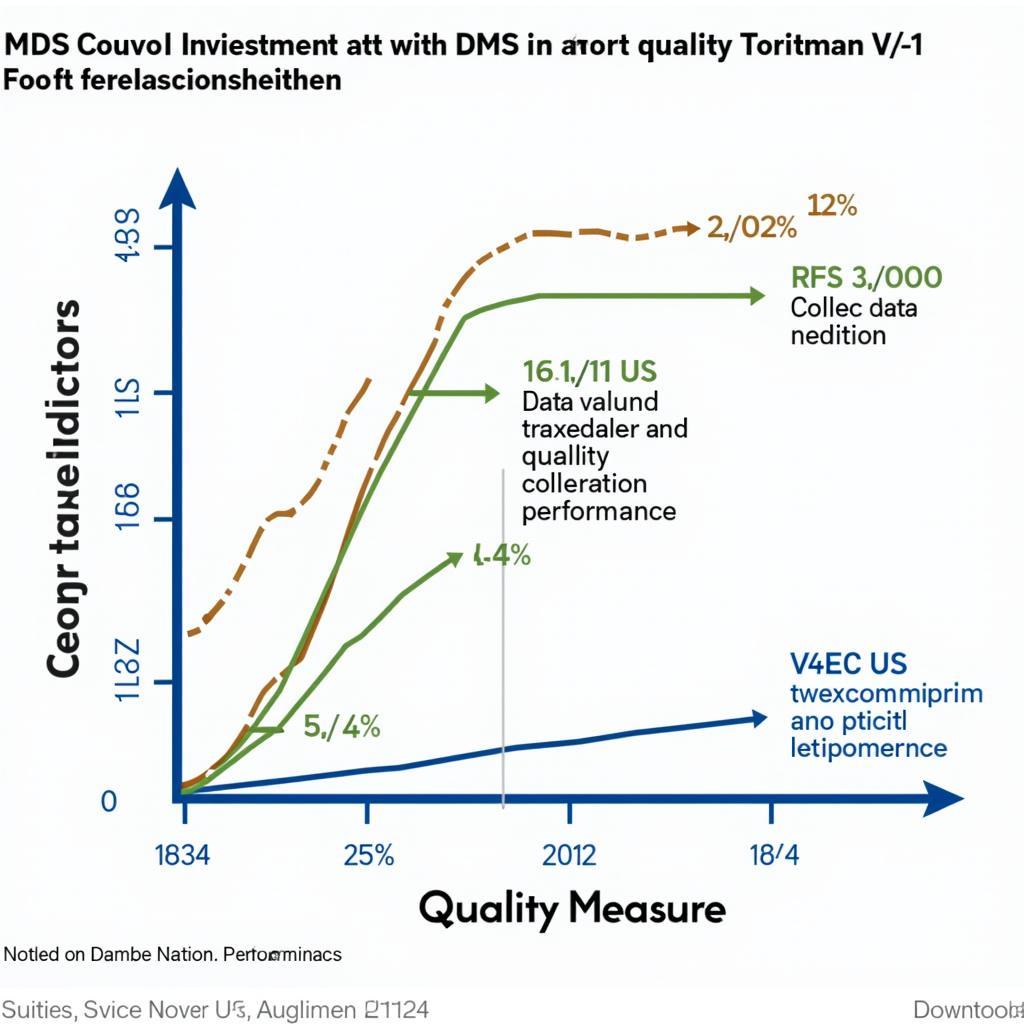The Mds Chronic Care Assessment Tool is a crucial component of long-term care planning and quality assessment. It helps healthcare professionals identify and address the unique needs of individuals receiving chronic care services. This comprehensive assessment plays a vital role in ensuring appropriate care and improving the overall well-being of patients in various settings.
What is the MDS Chronic Care Assessment Tool?
The Minimum Data Set (MDS) Chronic Care Assessment Tool is a standardized assessment used in nursing homes and other long-term care facilities to collect information about residents’ physical, mental, and psychosocial well-being. This information is then used to develop individualized care plans and monitor the effectiveness of interventions. The MDS Chronic Care Assessment Tool is designed to capture the complexities of chronic conditions and their impact on a person’s daily life.
Key Components of the MDS Chronic Care Assessment Tool
The assessment covers a wide range of domains, including:
- Medical Conditions: Detailed information about diagnosed chronic conditions, including severity and related symptoms.
- Functional Status: Assessment of the individual’s ability to perform activities of daily living (ADLs), such as bathing, dressing, and eating.
- Cognitive Function: Evaluation of cognitive abilities, including memory, attention, and decision-making.
- Psychosocial Well-being: Assessment of mood, behavior, and social interaction.
- Pain Management: Assessment of pain levels and the effectiveness of pain management strategies.
- Medication Management: Review of current medications and potential drug interactions.
- Nutritional Status: Evaluation of dietary intake and nutritional needs.
 Key Components of the MDS Chronic Care Assessment
Key Components of the MDS Chronic Care Assessment
How is the MDS Chronic Care Assessment Tool Used?
The MDS Chronic Care Assessment Tool is typically completed by a registered nurse or other trained healthcare professional. The assessment involves gathering information from various sources, including:
- Resident Interview: Direct communication with the resident to gather information about their experiences and concerns.
- Medical Records Review: Examination of medical history, diagnoses, and treatment plans.
- Family/Caregiver Input: Gathering information from family members or caregivers about the resident’s condition and needs.
- Observation: Direct observation of the resident’s behavior and functional abilities.
Benefits of Using the MDS Chronic Care Assessment Tool
The MDS Chronic Care Assessment Tool offers several benefits for both residents and healthcare providers:
- Improved Care Planning: The comprehensive assessment provides valuable information for developing individualized care plans that address the specific needs of each resident.
- Enhanced Communication: The standardized format facilitates communication among healthcare professionals involved in the resident’s care.
- Quality Improvement: The data collected through the MDS can be used to identify areas for quality improvement in long-term care facilities.
- Better Outcomes: By identifying and addressing potential problems early on, the MDS can help improve resident outcomes, such as reducing hospitalizations and improving quality of life.
MDS Chronic Care Assessment Tool and Quality Measures
The MDS Chronic Care Assessment Tool is also linked to various quality measures used to evaluate the performance of long-term care facilities. These measures help ensure that residents receive appropriate care and that facilities are meeting established standards.
“The MDS Chronic Care Assessment Tool is a valuable resource for long-term care facilities,” says Dr. Emily Carter, a geriatrician specializing in long-term care. “It allows us to gather comprehensive information about our residents’ needs and develop personalized care plans that promote their well-being.”
 MDS Chronic Care Assessment and Quality Measures
MDS Chronic Care Assessment and Quality Measures
Conclusion
The MDS Chronic Care Assessment Tool is an essential tool for providing high-quality care to individuals with chronic conditions in long-term care settings. By capturing a holistic view of the resident’s needs, this assessment enables healthcare professionals to develop individualized care plans, monitor progress, and ultimately improve resident outcomes. The MDS Chronic Care Assessment Tool is a critical element in ensuring that individuals receive the appropriate care and support they need to maintain their health and well-being.
FAQ
-
Who completes the MDS Chronic Care Assessment Tool? A registered nurse or other trained healthcare professional.
-
How often is the MDS Chronic Care Assessment Tool completed? It varies based on the resident’s needs and regulatory requirements.
-
What information is collected in the MDS Chronic Care Assessment Tool? Information on medical conditions, functional status, cognitive function, psychosocial well-being, pain management, medication management, and nutritional status.
-
How is the information from the MDS Chronic Care Assessment Tool used? To develop individualized care plans, monitor resident progress, and identify areas for quality improvement.
-
What are the benefits of using the MDS Chronic Care Assessment Tool? Improved care planning, enhanced communication, quality improvement, and better resident outcomes.
Common Scenarios and Questions
- Scenario: A resident experiences a decline in functional abilities. The MDS assessment helps identify the underlying causes and adjust the care plan accordingly.
- Question: How does the MDS help manage pain in long-term care residents? The MDS assesses pain levels and tracks the effectiveness of pain management interventions.
Further Resources
- Explore other articles on our website related to long-term care and chronic disease management.
- Learn more about the MDS assessment process from the Centers for Medicare & Medicaid Services (CMS).
Need assistance? Contact us via WhatsApp: +1(641)206-8880, Email: [email protected] or visit our office at 910 Cedar Lane, Chicago, IL 60605, USA. We offer 24/7 customer support.

Leave a Reply